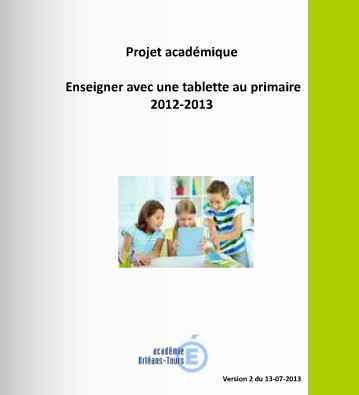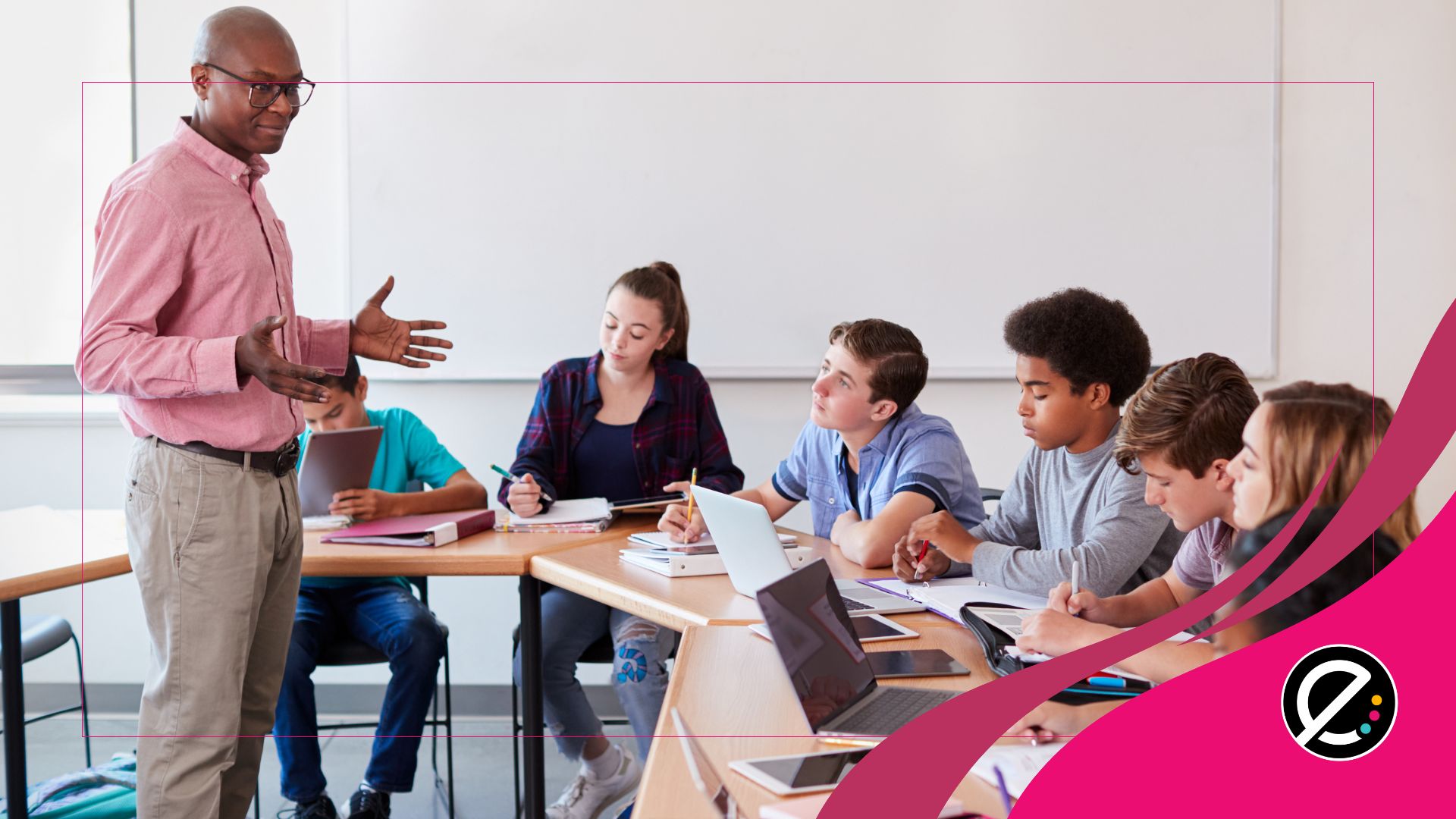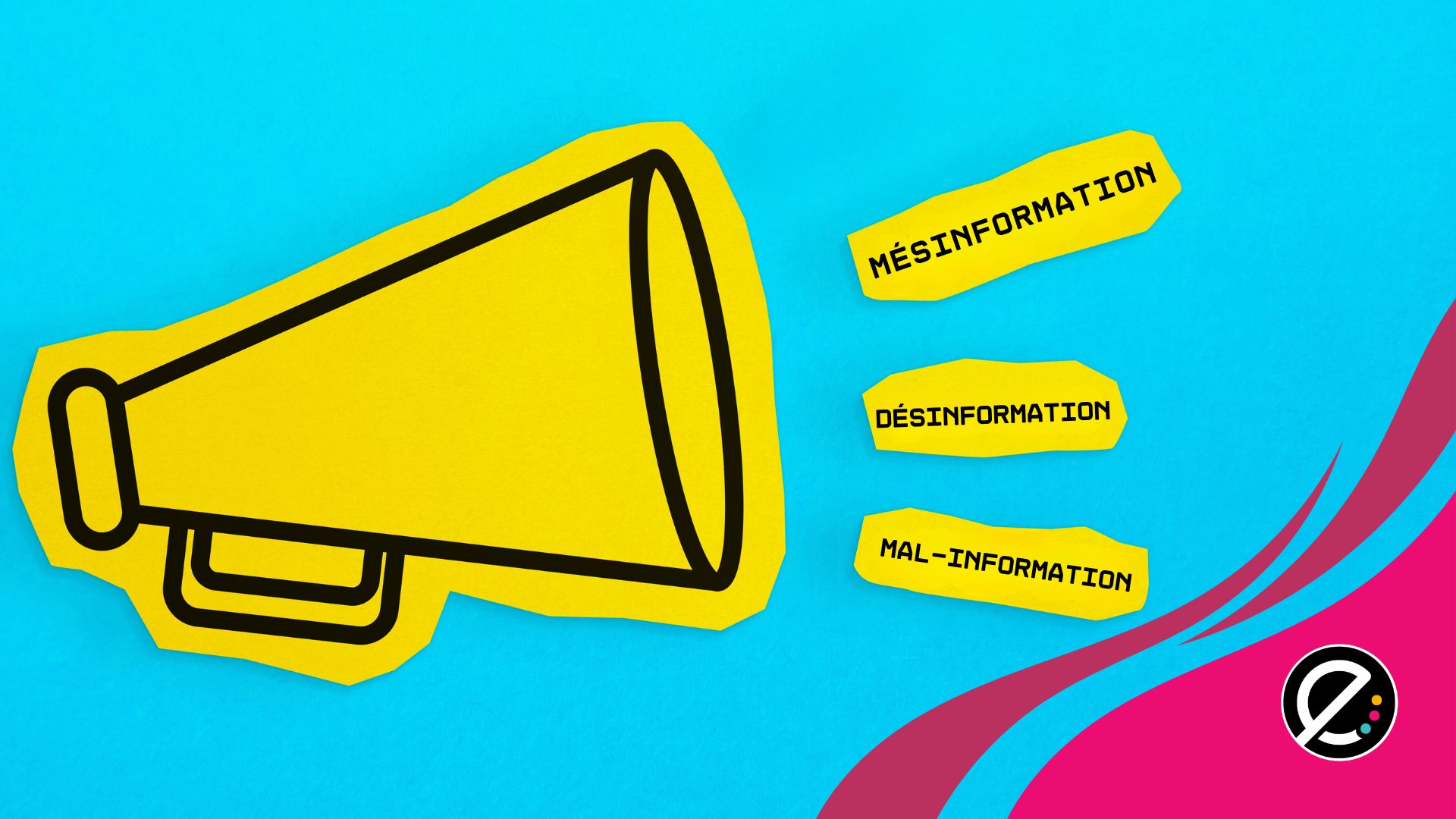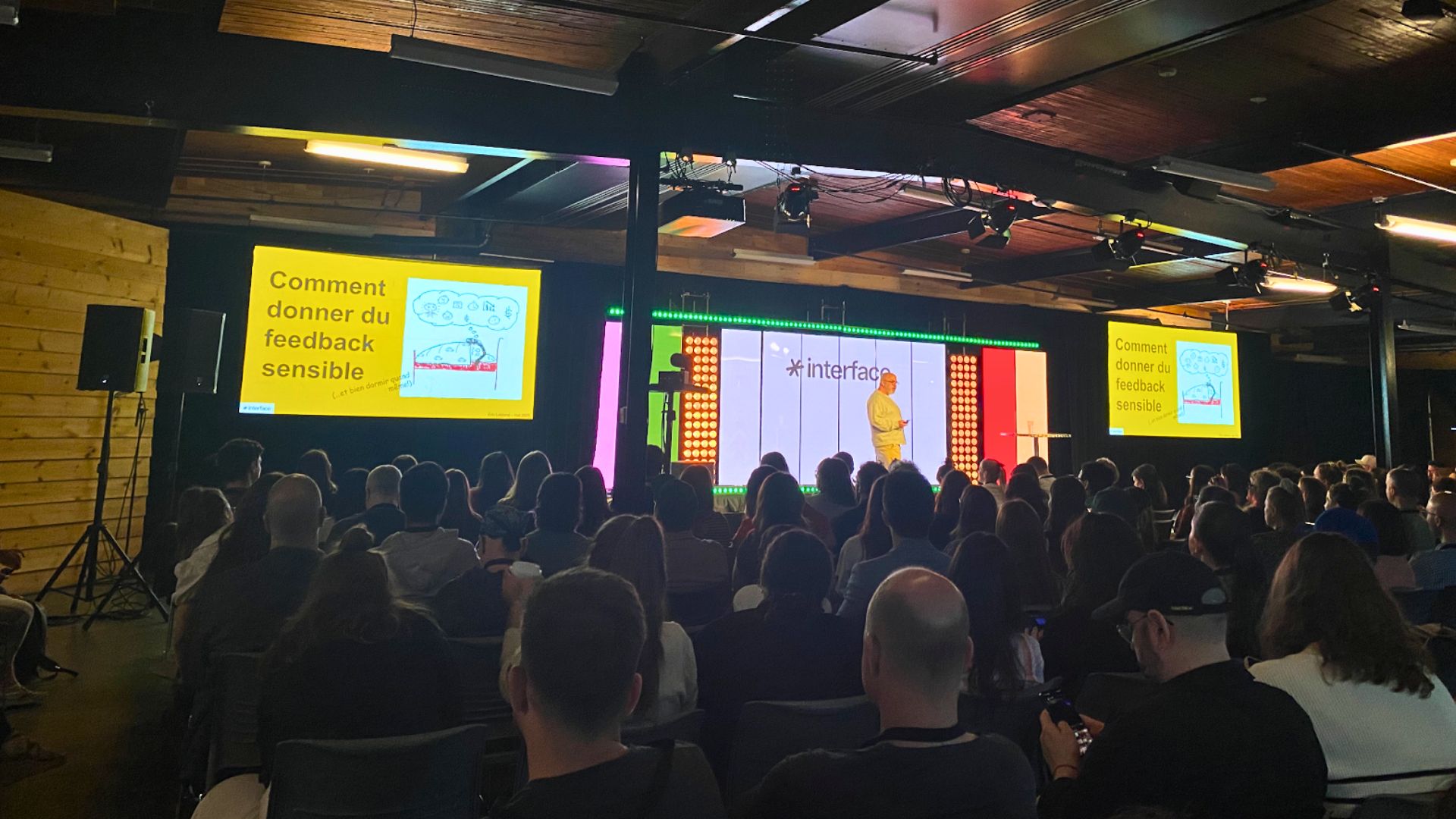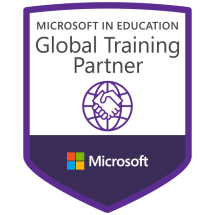L’Académie Orléans-Tours a étudié en 2012-2013 des projets pédagogiques vécus dans ses écoles intégrant des tablettes. Son rapport, « Enseigner avec une tablette au primaire », fait état des expériences et des conclusions et peut être consulté en ligne. On y retrouve plusieurs observations intéressantes.
Parmi les effets positifs retenus, on note que la tablette est un outil qui aide l’enseignant du préscolaire (maternelle – petite, moyenne et grande section) à médiatiser son enseignement. En effet, elle constitue à la fois « une banque d’images, un appareil photo, un laboratoire de langue ». De plus, toutes les expérimentations ont montré que « l’élève peut s’enregistrer, s’écouter, se corriger » grâce à l’outil. La facilité de prendre des photos et de créer des vidéos lui confère le titre de « boîte à mémoire » par plusieurs. De plus, on indique que « la tablette et ses applications lèvent les obstacles techniques à la réalisation d’un produit fini que les élèves sont fiers de montrer à leurs parents ». Notons qu’autant l’iPad que la tablette sous Android ont été utilisés.
À l’encontre de l’approche préconisée au Québec, on indique dans ce rapport qu’« il est primordial que l’enseignant puisse trouver “l’application” qui répondra le plus à ses besoins ». Pour ce faire, on cite l’existence de plusieurs répertoires d’applications parmi lesquels faire ses choix.
On a remarqué que, pour pallier le manque d’applications « à contenu » en français, de nombreux enseignants sont devenus auteurs en utilisant des applications de création d’activités de type classement, association, tri, quizz, exercices, etc.
Parmi les défis, on compte le temps nécessaire pour la création des contenus et activités dans cette optique, mais on ajoute que le tout sera idéalement réutilisable d’année en année. Aussi, on indique la nécessité de mutualiser les efforts entre enseignants.
Un avantage important de la tablette est la possibilité d’en projeter le contenu via un projecteur afin de faire les retours d’activités en grand groupe. « Les élèves se sont réellement sentis impliqués en montrant leur travail à leurs camarades. »
Pour consulter le rapport complet, c’est par ici.



